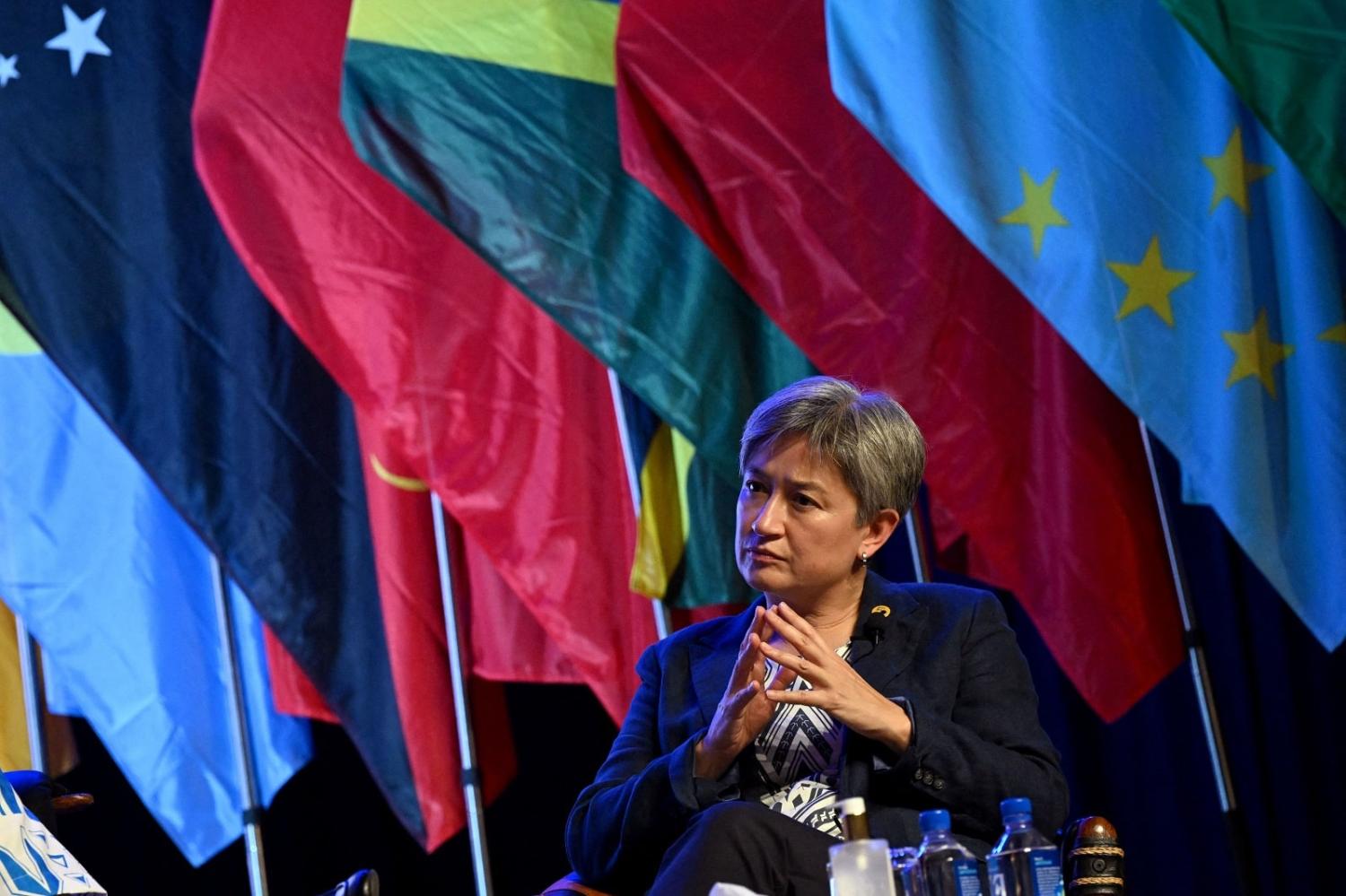With the Albanese government blitzing the Pacific to reset and renew relationships, do Australians feel more at ease in the region this year?
The short answer is no. Despite more than a year of Foreign Minister Penny Wong making herself known to Pacific Island Forum nations, 87 per cent of Australians are still worried about China in the Pacific, according to the 2023 Lowy Institute Poll surveying Australian public opinion on international affairs. So why are Australians still just as concerned about China’s regional reach as last year when concern about the Solomon Islands–China security pact dominated the final days of the Morrison government?
It appears that the Albanese government’s commitment to relationships has done little to boost Australians’ confidence. A new question was put to Australians in the Lowy Institute Poll this year: “In your opinion, are Australia’s relations with Pacific Island countries improving, worsening or staying about the same?” Half of the respondents think Australia’s relations are staying about the same, while only a quarter think they are improving. Slightly less (22 per cent) – but still a notable amount – feel relations are worsening. As a whole, that means seven out of ten Australians feel as though relations aren’t getting any better.
Just like Pacific nations, Australians are waiting to see words translated into outcomes – they want to see less talk, and more action.
Nearly nine out of ten Australians say they are still “very concerned” or “somewhat concerned” about China potentially opening a military base in the Pacific – especially in Solomon Islands. But are their jitters warranted? Some experts don’t think so – they argue the biggest risks of the agreement are chewing up Australia’s diplomatic resources or creating further domestic unrest in Solomon Islands. Nuanced arguments can be lost amid the noise, however, and the message reaching the Australian constituency is urgency is a priority.
At 87 per cent, the level of concern about a Chinese military presence has remained high since 2022, when the question was first put to Australians, and is 30 points higher than in 2019, when a similar question was asked. Yet the number of Australians “very concerned” about China opening a military base has dropped 18 points since 2022, alongside media hype about a broader China–Pacific Islands regional security deal after it was rejected by Pacific leaders.
A similarly high number – 84 per cent – still support using Australia’s aid to counter China’s rise in the region. While competition for influence can result in more development funds to Pacific nations, which overall is a good thing, Pacific leaders would likely rather see development based on their country's needs, not the strategic needs of others.
And Australians are in favour of that, too. A vast majority (nine out of ten Australians) think paying for humanitarian responses and relief packages after damaging weather events in the Pacific, as well as supporting the long-term economic development of the region (eight out of ten), are good things to do. A more modern form of foreign aid – climate change action – received slightly less support, although still a comfortable majority. Three-quarters of Australians feel their government should give climate-related aid to the Pacific Island nations, steady on the year prior.
But will these development and relief programs make Australians feel more secure in their neighbourhood? Unlikely. With bilateral security deals now being struck by Australia and the United States with key Pacific partners, Australians can see that security concerns remain prominent for now. Pacific leaders will continue to pressure Australia as it aims to remain “preferred partner” in a region where the policy “friends to all and enemies to none” reigns.
The recent signing of a US–Papua New Guinea 15-year security agreement may make Australians feel more secure, though. Media reports that the US “military has been given ‘unimpeded access’ to key PNG defence facilities, including the joint PNG–Australia Lombrum Naval Base on Manus Island” appear unlikely to faze Australians. In the 2019 Lowy Institute Poll, a slim majority (54 per cent) agreed that “Australia should partner with Papua New Guinea and the United States in redeveloping a joint military base on Manus Island”, indicating broad public support of US military cooperation with its nearest neighbour.
Other security deals, such as the one proposed between Australia and Vanuatu, may not even get across the line. But given the ongoing domestic support for regional aid and development, Australia will continue to work on what it does well – helping the Pacific family work towards a shared aspiration of regional stability, sovereignty and prosperity.


